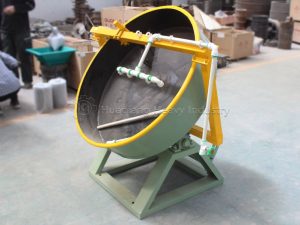Organic fertilizers can be divided into powder and granular forms. They have some differences in use and performance:
1. Particle size: Powdered organic fertilizers have finer particles, usually in powder form, while granular organic fertilizers are granulated from powder into granules. Granular organic fertilizers have relatively large particle sizes and regular shapes.
2. Application method: Powdered organic fertilizers are usually suitable for uniform spreading or spraying, usually by hand. Granular organic fertilizers are more suitable for mechanical application, such as fertilizer applicators, seeders, etc. The regular shape and larger particle size of granular organic fertilizers make them easier to control and quantify during application.

3. Applicable situations: Powdered organic fertilizers are suitable for small-area application, mixing with soil before sowing, or using as base fertilizer. Granular organic fertilizers are suitable for large-area application, mechanical fertilization, and long-term fertilization.
4. Nutrient release rate: Since powdered organic fertilizers have smaller particles and larger surface area, they release nutrients faster and can quickly supply the nutrients needed by plants. However, due to the larger particles, granular organic fertilizers release nutrients relatively slowly, and need to be gradually decomposed and transformed in the soil before they can be supplied to plants.
5. Storage and transportation: Powdered organic fertilizers are relatively sensitive during storage and transportation, and are prone to drifting, moisture or agglomeration. Granular organic fertilizers have regular particle shapes, good fluidity and packaging stability, and are easier to store and transport.


